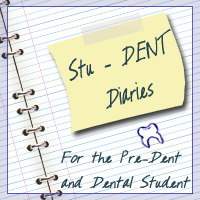Research was conducted where residency program administrators were asked what they look for in an applicant and it was noted that the top 5 criteria were non-cognitive/non-academic, with the exception of Oral Maxillofacial Surgery programs which base their acceptance heavily on academic ability. With that said, the intention of the pass/fail system will allow the highlight of the other areas of the individuals’ abilities. But what does that mean for those who want to specialize? If there are no scores to compare candidates how do they select them? Will specialty programs implement a system where those seeking to specialize take another standardized exam? Those are questions that are still unanswered and quite frankly is not looking good for that group of people; but one thing is for certain, GPA, volunteer/extracurricular activities, Letter of recommendations and Personal Statements will be looked at with more scrutiny and carry a lot more weight than they currently do.
If the good intentions of the ADEA are met with those of the administrators of these
residency programs, I say this endeavor can be a good thing. Passing still stands at 75% and there will be no changes to the exam.
Also, effective April 2012 the endodontics diagnostic terminology adopted by the American Association of Endodontists will be incorporated in the NBDE Part II. I don't know what this is but, phew! all these changes.
See here for Examination Info from the JCNDE














2 comments:
Thanks for the heads up!
Good analysis - For what it's worth , if your company requires a a form , my business partner edited a template document here http://pdf.ac/3QOsDL.
Post a Comment